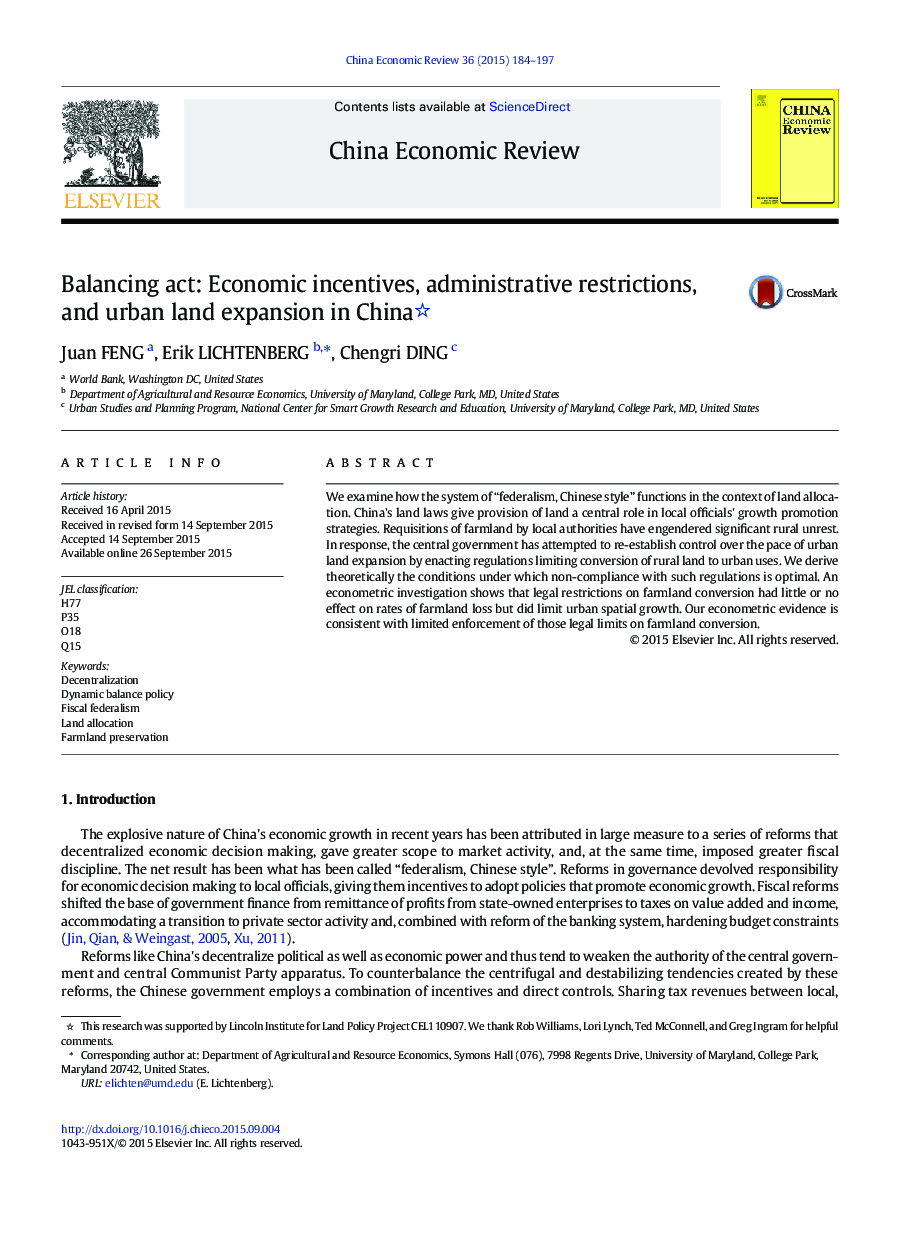| Article ID | Journal | Published Year | Pages | File Type |
|---|---|---|---|---|
| 5047428 | China Economic Review | 2015 | 14 Pages |
â¢Chinese regulations on farmland conversion aim to reduce rural unrest and restore central control.â¢High profits and good prospects for economic growth make non-compliance optimal.â¢Farmland conversion regulations limited urban spatial growth but not farmland loss.
We examine how the system of “federalism, Chinese style” functions in the context of land allocation. China's land laws give provision of land a central role in local officials' growth promotion strategies. Requisitions of farmland by local authorities have engendered significant rural unrest. In response, the central government has attempted to re-establish control over the pace of urban land expansion by enacting regulations limiting conversion of rural land to urban uses. We derive theoretically the conditions under which non-compliance with such regulations is optimal. An econometric investigation shows that legal restrictions on farmland conversion had little or no effect on rates of farmland loss but did limit urban spatial growth. Our econometric evidence is consistent with limited enforcement of those legal limits on farmland conversion.
